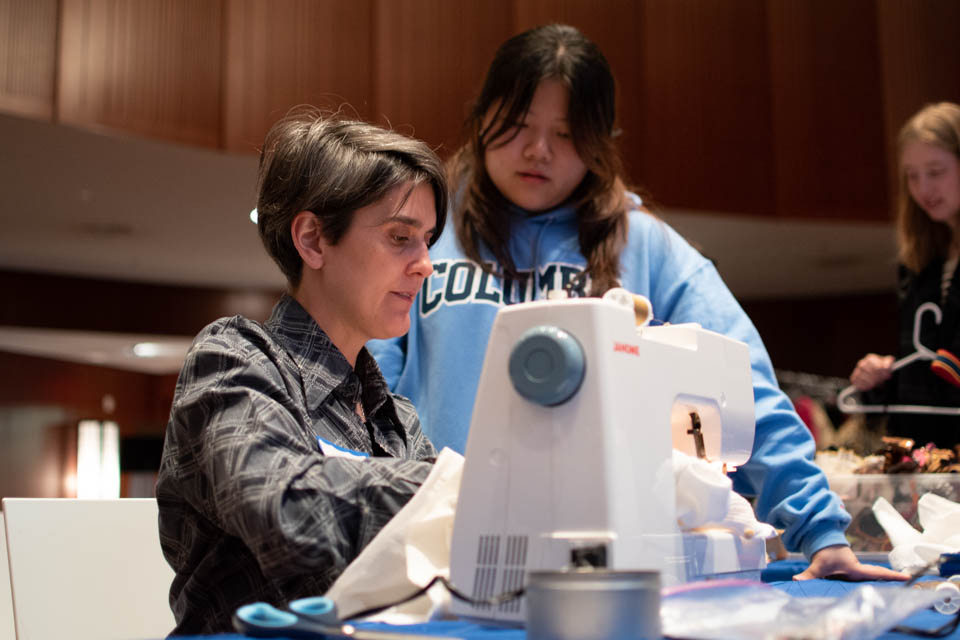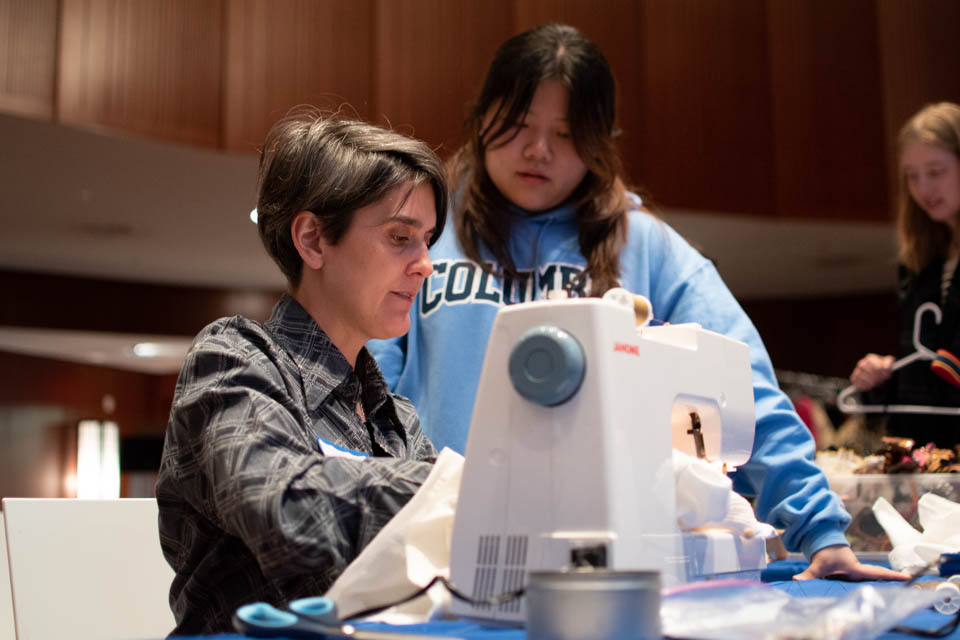Every second, a garbage truck’s worth of textiles is landfilled or burned.
The fashion production industry is one of the largest contributors to global carbon emissions; it outputs more carbon than the emissions of all international flights and overseas shipping combined.
On a campus in New York City, a global fashion epicenter, the pressure to keep up with fashion trends can make it difficult to avoid fast fashion and shop sustainably. However, many Columbia students, clubs, and campus initiatives are working to actively combat the pressures of fast fashion and make their relationship with style more sustainable.
Fast fashion is a retail term used to describe styles that quickly move down from the runway to become mainstream fashion trends. Stores like Forever 21, Zara, and H&M utilize the fast fashion model.
Courtney Lyons, BC ’21, who describes herself as a sort of “micro-influencer” and style blogger, takes pride in the fact that she has not purchased a piece of fast fashion clothing since May of last year. She attributes this accomplishment to thrift shopping, repurposing clothing, and her commitment to Rent the Runway.
Lyons was previously an intern at Rent the Runway, a retailer that allows customers to rent clothing and then send it back after a period of time. Lyons described Rent the Runway as the “Netflix of the fashion world,” and has continued to use the service after her internship ended. The company allows Lyons to shop sustainably and save money while staying on trend.
While Lyons may have found an effective way to shop sustainably for herself, she still understands that cutting off fast fashion completely may not be plausible for everyone, especially for people on limited budgets.
“Even if you do shop at Zara, because it’s unavoidable at times, go by the thirty rule,” Lyons said. “If you see yourself wearing this more than thirty times, you can get it, because then you will be maximizing the use of it and then it won’t just go to waste.”
Jade Thompson, BC ’21, is also an advocate for sustainable fashion and creative ways that students can integrate these shopping habits into their lives. Thompson helped organize the Women, Clothing, and Climate event at the Diana Center last Wednesday. She works for the Sustainability Department at Barnard, which sponsors campus initiatives to make Barnard’s campus a greener, more sustainable place. Past departmental initiatives include providing reusable dining hall containers to reduce paper waste and the “bring your own coffee mug” discount at Liz’s Place.
At the Women, Clothing, and Climate event, the Sustainability Department aimed to get students more involved in understanding sustainability in fashion. The event was organized with the help of Associate Professor of Professional Practice in Theatre and Director of Campus Sustainability and Climate Action Sandra Goldmark and Hannah Park, BC ’19. It featured a used clothing sale, a workshop on mending clothes, and a panel discussion on the intersection of climate change and apparel. As a student leader for the event, Thompson worked on the student design challenge, something she is very familiar with, as she designs and repurposes clothes for herself.

Arielle Shternfeld
Students at the Women, Clothing and Climate event participated in workshops to help them learn more about sustainable fashion.
“Anything that you see on my body is repurposed. From a thrift store, to hand-me-downs, or something,” Thompson said. “This is something that I’m pushing for; it’s something that I value and I make an active part of my life.”
Thompson also acknowledged that while Columbia students are aware of sustainability issues, those who shop sustainably do not necessarily do it to benefit the environment.
“Sustainable fashion is so heavily linked to social justice, which is something that I feel like Barnard and Columbia students are so passionate about,” Thompson said. “I think that currently, people thrift shop not out of obligation to the environment or social obligations, but just because it’s cool. That’s why it’s really important now to feed off of that sentiment and to say that ‘This is not only cool, but this is also beneficial for people, which you guys care about, and the environment, which you guys care about, but should care about more.’”
Other volunteers at the Women, Clothing, and Climate event were excited to be a part of the sustainable fashion movement. Issy Miles, CC ’21, volunteered by helping organize clothes, set up racks, and prep mannequins.
“Being able to shop in this way, but also to donate, as well as to mend clothes and alter them in different ways is a great way of promoting sustainable fashion,” Miles said.
Columbia events and online communities like Buy | Sell | Trade | at Barnard, and events like Women, Clothing, and Climate and Hoot Market continue to promote sustainable fashion on campus in fun and exciting ways. However, some of the students involved in these initiatives noted that what students really need is a change in lifestyle, not just a change in spending habits, if they want to truly live sustainably.
“Making that effort to possibly want less, and value what we already have,” Thompson said, is key to sustainable living. “Take the extra time to think, ‘Do you really need this?’ I think a change in mindset is what we, as students, need to do.”
Staff writer Esterah Brown can be contacted at esterah.brown@columbiaspectator.com. Follow her on Twitter @EsterahBrown.

